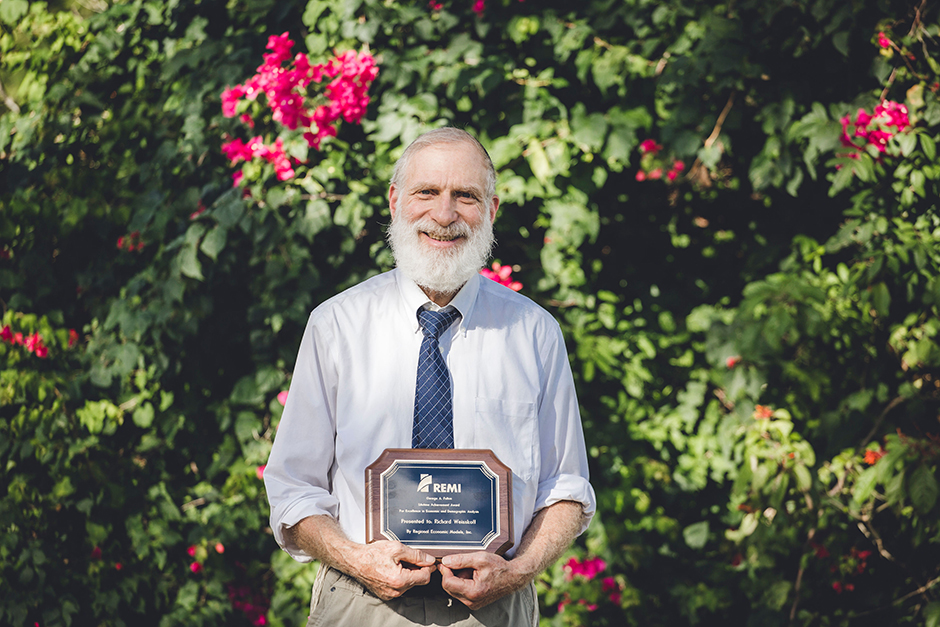Richard Weisskoff, professor and chair of the University of Miami Department of International Studies, recently received the prestigious George A. Fulton Lifetime Achievement Award for Excellence in Economic and Demographic Analysis.
Bestowed by the economic modeling and policy analysis firm REMI, the award honors recipients for their career contributions to the field of economic impact analysis, particularly their application of REMI models in answering vital policy questions. Founded in 1980, REMI develops modeling software that enables researchers to estimate economic and demographic effects of policy changes over time.
Calling such economic assessments his specialty, Weisskoff has used economic models to research activities that impact development and ecology, natural resources, regional economics, income distribution, and poverty across the globe, but most notably in Latin America, the Caribbean, and South Florida.
Over the years, he has applied economic analysis to coral reefs, beaches, forests, recreational and industrial parks, and farmland conversion, and is currently focused on a vital South Florida water resource, the Everglades.
“I wanted to model the entire region of the Everglades by mapping it out and watching it grow over the next 30 years, and then find out if there would be enough water to support Everglades restoration as well as the future population,” Weisskoff says.
Weisskoff first came up with the idea to create economic models to illustrate his research findings while in Puerto Rico during the 1960s. There, he focused specifically on how human behavior impacted growth-related patterns of economic development, showing what is widely acknowledged today.
“Puerto Rico was a model of how not to develop,” Weisskoff says. “The island had all of the right pieces: good agriculture, a good educational system, trade, and, of course, it was a part of the United States. Yet, their strategy to industrialize and abandon agriculture, sterilize women, and export people for population control was completely flawed.”
Weisskoff, who joined the UM family in 1989, is the author of two books: The Economics of Everglades Restoration: Missing Pieces in the Future of South Florida (2005) and Factories and Food Stamps: The Puerto Rico Model of Development (1985). Over his career, he has worked for the United Nations, Bar Ilan University in Israel, Iowa State (Ames), and Yale University, and has been a visiting professor at Notre Dame, American University and at universities in Mexico, Puerto Rico, and Peru.
Weisskoff is also known for his beautification projects around the University, specifically the organic and sustainable garden growing on the Coral Gables campus.

